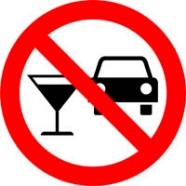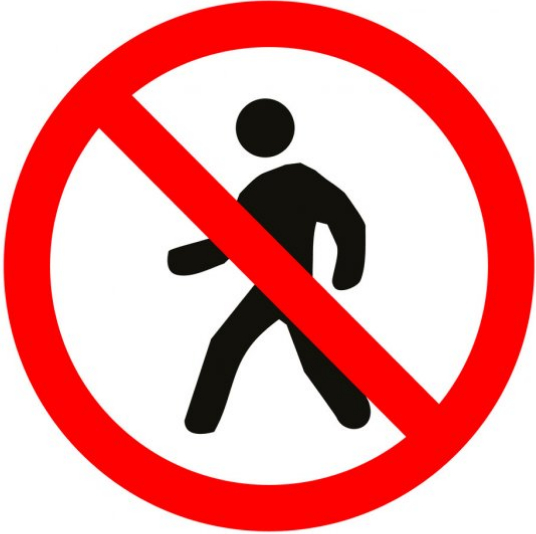|
SỞ GD – ĐT THÀNH PHỐ HỒ CHÍ MINH ĐỀ THI THỬ SỐ 24 |
KỲ THI TUYỂN SINH VÀO LỚP 10 Thời gian làm bài: 90 phút |
Họ và tên học sinh:.................................................................................................................................................
- Choose the word (A, B, C or D) whose underlined part is pronounced differently from the others.
- Choose the word (A, B, C or D) whose main stress is placed differently from the others in each group.
- A. economic B. activity C. disappointed D. scientific
- A. detective B. romantic C. national D. adventure
- Choose the word / phrase (A, B, C or D) that best fits the space in each sentence.
A. life skill B. shopping habit C. blame game D. laziness
A. side B. bank C. part D. place
A. work B. hobby C. free time D. duty
A. to come B. to reach C. to get D. to arrive
A. about B. up C. down D. from
A. is B. would C. could be D. be
A. was learning B. had learned C. has been learning D. learned
A. Yes, we shall. B. How do you do? C. Yes, let’s! D. You’re welcome.
A. We have no other choices. B. What you did was so stupid.
C. I’d like to stop you doing so. D. Have a nice trip to Hue.
- Choose the best answer (A, B, C or D) for the following picture or sign.
|
A. You mustn’t drive after drinking. B. You shouldn’t drink after taking medicines. |
|
- Choose the word (A, B, C or D) that best fits the blank space in the following passage.
- A. participate B. take C. enter D. get
- A. enables B. allows C. makes D. causes
- A. although B. because C. so D. but
- A. mentioned B. told C. known D. called
- A. anyone B. those C. someone D. Everyone
- A. for B. with C. on D. in
- Read the passage, then decide if the statements that follow it are True or False.
- The town isn't so beautiful as the country. __________________
- English villages are completely alike. __________________
- It is not far from most villages to some small towns. __________________
- People can buy everything in the village shops. __________________
Read the passage again and choose the most suitable item.
A. to encourage people to live in the country. B. to introduce English villages.
C. to compare towns with villages. D. to describe the quiet life in the country.
A. villages B. towns C. people D. holidays
- Use the correct form of the word given in each sentence.
- I'm _________________________________ that we will have a vacation abroad this week. (delight)
- He _________________________________ packed his school things and left immediately. (hurry)
- How to boost up self-__________________________________ is what the lecture aims at. (confide)
- We took __________________________ food like chicken salad with grapes last weekend. (picnic)
- Though he has final exam tomorrow, it looks as if he was ___________________________. (worry)
- Sophia did her best to provide _____________________________ atmosphere in her home. (relaxion)
- Put the words in the correct order to make meaningful sentences.
- Rewrite each of the following sentences in another way so that it means almost the same as the sentence printed before it.
|
SỞ GD – ĐT THÀNH PHỐ HỒ CHÍ MINH ĐỀ THI THỬ SỐ 24 |
KỲ THI TUYỂN SINH VÀO LỚP 10 Thời gian làm bài: 90 phút |
I. Choose the word (A, B, C or D) whose underlined part is pronounced differently from the others.
- A. chemistry /k/ B. kitchen /ʧ/ C. watch /ʧ/ D. catch /ʧ/
- A. invited /ɪd/ B. wanted /ɪd/ C. ended /ɪd/ D. liked /t/
II. Choose the word (A, B, C or D) whose main stress is placed differently from the others in each group.
- A. economic /ˌiːkəˈnɒmɪk/ B. activity /ækˈtɪvɪti/
C. disappointed /dɪsəˈpɔɪntɪd/ D. scientific /saɪənˈtɪfɪk/
- A. detective / dɪˈtektɪv / B. romantic / rəʊˈmæntɪk /
C. national / ˈnæʃənl / D. adventure / ədˈvenʧə /
III. Choose the word or phrase (A, B, C or D) that best fits the blank space in each sentence
- A. life skill: Kiểm tra từ vựng.
Dịch: Một trong những điều thiết yếu mà trẻ em khi lớn lên cần có được đó là kỹ năng sống.
- A. On.
- B. bank: Kiểm tra từ vựng. Nhớ “river bank”: bờ sông.
Dịch: Chúng tôi đã có một bữa ăn ngoài trời trên bờ sông trước khi về nhà vào buổi tối muộn.
- B. hobby: Kiểm tra từ vựng: work (công việc), hobby (sở thích), free time (thời gian rảnh), duty (nhiệm vụ)
Dịch: Sở thích của tôi là chơi tennis và sưu tập tiền xu..
- B. to reach (đến tận nơi)
Come / reach / get / arrive đều có nghĩ là đến/ tới.
Nhưng có cách sử dụng khác nhau:
- Come to sth: I came to Ha Noi yesterday
- Get to sth: I get to Ha Noi yesterday
- Reach (transitive verb) + O: They reached Ha Noi yesterday.
- Arrive at/ in/ on + O: They arrive in Ha Noi yesterday.
Dịch: Chúng tôi mất hai giờ để đế / tới làng bằng xe buýt.
- C. down: Kiểm tra cụm động từ: calm dow (bình tĩnh)
Dịch: Bạn nên bình tĩnh và chúng tôi sẽ tìm ra cách giải quyết tốt nhất.
- C. could be: Ước một việc không thể xảy ra ở hiện tại:
S + wish(es) + (that) + S + would/could + V0…
- C. has been learning: Cấu trúc
Since + quá khứ đơn, hiện tại hoàn thành / hiện tại hoàn thành tiếp diễn.
- C. Yes, let’s! Câu hội thoại thực tế đáp lại lời mời.
Dịch: “Tối nay chúng ta ăn ngoài nhé”
“Vâng, đi thôi”
- D. Have a nice trip to Hue: Câu hội thoại thực tế. Chọn câu hợp với ngữ cảnh.
Dịch: “Chúc bạn có một chuyến đi Huế vui vẻ”
“Thật vui khi bạn nói vậy.”
IV. Choose the best answer (A, B, C or D) for the following picture or sign.
- A. Biển báo có nghĩa là:
Bạn không được lái xe sau khi uống rượu.
- C. Bạn thấy biển báo này trên cột điện, nó có nghĩa là:
Cấm người đi bộ qua đường.
V. Choose the word (A, B, C or D) that best fits the blank space in the following passage.
- A. participate
- C. makes
- B. because
- D. called
- B. those
- C. on
Cắm trại là một hoạt động mà mọi người sống tạm thời ở ngoài trời. Những người cắm trại tham gia (17) câu cá, săn bắn, bơi lội và quan sát động vật hoang dã. Nó mang lại những lợi ích về thể chất khi liên quan đến việc đi bộ đường dài quanh khu cắm trại và nhiều người tin rằng cắm trại làm cho (18) thanh niên cảm thấy tự tin hơn.
Mọi người trên khắp thế giới thích đi bộ đường dài đến các khu cắm trại hoang dã. Hoạt động này được gọi là du lịch “bụi” (Tây ba lô) vì (19) nó bao gồm việc mang theo những dụng cụ cắm trại thiết yếu như lều, thực phẩm, quần áo và túi ngủ ở phía sau trong một chiếc túi được gọi là (20) ba lô. Du kịch “bụi” phù hợp nhất cho (21) những người có thể chất tốt vì nó có thể phải đi bộ vài km.
Chìa khóa cho bất kỳ chuyến đi cắm trại thú vị nào là lập kế hoạch. Quyết định (22) nơi cắm trại phụ thuộc vào sở thích cá nhân, nhưng việc lập kế hoạch cho chuyến đi trước khi rời đi sẽ giúp trại viên tránh được những tai nạn có thể phòng tránh được.
Điểm ngữ pháp câu 22: A decision on: quyết định
VI. Read the passage, then decide if the statements that follow it are True or False
The country is more beautiful than a town and more pleasant to live in. Many people think so, and go to the country for summer holidays though they cannot live there all the year around. Some have a cottage built in a village so that they can go there whenever they can find the time.
English villages are not all like, but in some ways they are not very different from one another. Almost every village has a church, the round or square tower of which can be seen for many miles around. Surrounding the church is the churchyard where people are buried.
The village green is a wide stretch of grass, and houses or cottages are built round it. Country life is now fairly comfortable and many villages have water brought through pipes into each house. Most villages are so close to some small towns that people can go there to buy what they cannot find in the village shop.
- TRUE. Từ khóa là beautiful. Câu văn The country is more beautiful than a town and more pleasant to live in.
- FALSE. Từ khóa là English villages. Câu văn English villages are not all like.
- TRUE. Từ khóa small towns. Câu văn Most villages are so close to some small towns.
- FALSE. Từ khóa là shop. Câu văn people can go there to buy what they cannot find in the village shop.
- B. to introduce English villages.
- C. people.
VII. Use the correct form of the word given in each sentence
- Dấu hiệu: Trước chỗ trống là động từ tobe “am”, do đó chỗ trống là tính từ đuôi “ed” vì chủ ngữ là người.
Đáp án: delighted.
- Dấu hiệu: trước chỗ trống là chủ ngữ “he”, sau chỗ trống là động từ “packed”, do đó chỗ trống là trạng từ bổ nghĩa cho động từ. Chuyển động từ “hurry” sang tính từ “hurried” (chủ ngữ chỉ người nên tính từ đuôi “ed”) rồi thêm “ly” để thành trạng từ.
Đáp án: hurriedly.
- Dấu hiệu: self-confidence: tự tin.
Đáp án: confidence.
- Dấu hiệu: Sau chỗ trống có danh từ “food”, do đó chỗ trống phải là tính từ.
Đáp án: picnicky.
- Dấu hiệu: Trước chỗ trống là động từ tobe “was”, do đó chỗ trống phải là tính từ.
Đáp án: worried.
- Dấu hiệu: Sau chỗ trống là danh từ “atmosphere” do đó chỗ trống phải là tính từ. Tính từ làm cho người khác cảm thấy như thế nào thì dùng đuôi “ing”
Đáp án: relaxing.
VIII. Put the words in the correct order to make meaningful sentences.
- It was such good weather that we went swimming.
Dịch: Trời quá đẹp để chúng ta đi bơi.
- Many sightseers walked around the tourist attraction and took photos.
Dịch: Nhiều người tham quan đã dạo quanh điểm du lịch và chụp ảnh.
IX. Rewrite each of the following sentences in another way so that it means almost the same as the sentence printed before it.
- Viết lại câu bị động ở thì quá khứ đơn:
S + was/were + V3 + … + (by O)
Đáp án: I was made to wait for the door for twenty minutes.
- Viết lại câu ước với “wish”. Ước một điều không có thật ở hiện tại: S + wish(es) + (that) + S + V2 + …
Đáp án: He wishes he could see Audrey on her trip to London.
- Viết lại câu với nghĩa không đổi dùng “be/get used to + V-ing”: quen dần với.
Đáp án: I'm not used to traveling by air.
- Viết lại câu với cấu trúc: It takes/took (sb) + [time] + to V…
Đáp án: It took me two days to travel to that town.

